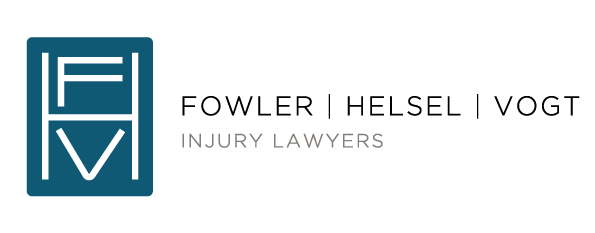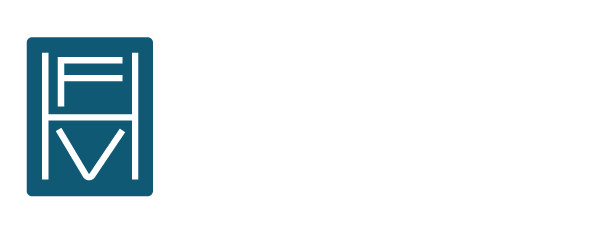Seeing your child get hurt is every parent’s nightmare. When that injury involves a concussion, the fear can feel overwhelming. Concussions are a type of traumatic brain injury (TBI) caused by a bump, blow, or jolt to the head. While they’re often associated with contact sports, concussions can happen anywhere—on the playground, at school, or even in minor accidents.
As a parent, it’s crucial to know how to recognize the signs of a concussion, understand the potential long-term effects, and what steps to take, especially if someone else’s negligence caused the injury. Here’s a straightforward guide to help you care for your child and understand your legal rights.
Common Causes of Concussions in Children
Children are naturally curious and active, which means they’re no strangers to tumbles and falls. But concussions, unlike scraped knees, require extra attention. Here are some situations that can lead to concussions in kids:
- Sports-related collisions (football, soccer, or basketball are common culprits)
- Falls on playgrounds, stairs, or uneven surfaces
- Car accidents, even minor ones where the head strikes a window or dashboard
- Bike or scooter accidents, especially without proper helmets
- School incidents like slipping on wet floors or physical altercations
- Defective or improperly maintained equipment, such as swing sets or climbing structures
While bumps and bruises are part of childhood, it’s important to remember that concussions aren’t always immediately apparent. That’s why knowing the symptoms is essential.
Recognizing the Symptoms of a Concussion
Concussions don’t always result in a loss of consciousness, which can make them harder to spot. Symptoms may appear right after the injury or take hours (or even days). Be on the lookout for these key signs:
Physical Symptoms:
- Headache or pressure in the head
- Dizziness or balance problems
- Nausea or vomiting
- Sensitivity to light or noise
- Visual disturbances (blurry or double vision)
Cognitive Symptoms:
- Confusion or difficulty concentrating
- Memory problems, such as forgetting the injury itself
- Feeling “foggy” or mentally slowed down
Emotional Symptoms:
- Irritability or mood swings
- Increased anxiety or sadness
- Changes in sleep patterns, such as sleeping too much or too little
For younger children, who may not be able to describe how they’re feeling, watch for behaviors like excessive crying, loss of interest in toys, clumsiness, or changes in feeding routines.
If your child shows any concussion symptoms—or if you suspect a head injury—it’s critical to seek medical attention right away.
Potential Long-term Effects of Concussions
Most children recover from concussions within a few weeks, but some may experience long-term effects. These include:
- Post-concussion syndrome, where symptoms persist for months
- Difficulty concentrating or recalling information
- Behavioral changes, such as increased irritability or anxiety
- Sleep disturbances that affect daily functioning
- Increased risk of another concussion, especially if the brain hasn’t fully healed
Repeated concussions can lead to more serious issues in the future, including chronic traumatic encephalopathy (CTE), a degenerative brain condition often linked to multiple head injuries.
The road to recovery often includes plenty of rest, limited screen time, and restrictions on physical activity. But what happens if your child’s concussion could have been prevented?
When Negligence Plays a Role in a Child’s Injury
If someone else’s carelessness caused your child’s concussion, you may feel a mix of anger and frustration. Whether it was an improperly supervised sports practice, a playground with broken equipment, or an unrestrained child in a vehicle, negligence can turn an accident into an avoidable tragedy.
Common Scenarios for Negligence:
- A school or daycare failing to provide adequate supervision
- Coaches ignoring concussion protocols or encouraging kids to “play through” injuries
- Poorly maintained playgrounds or athletic facilities
- Reckless driving during a carpool or school bus incident
- Faulty helmets or equipment used during sports or bike rides
When negligence leads to your child’s injury, it’s not just about holding someone accountable—it’s about ensuring your family receives the support and resources needed for recovery.
Legal Options for Families
Pursuing legal action after your child’s concussion might feel overwhelming, but it can be an important step in covering medical costs, securing future care, and ensuring those responsible are held accountable. Here are the key points to consider:
1. Document the Incident
- Keep all medical records and treatment plans from doctors or specialists.
- If possible, take photos of the location where the injury happened or the equipment involved.
- Note any witnesses who saw the incident or unsafe conditions.
2. Report the Accident
- Notify relevant parties, such as the school, daycare, or sports organization. This creates an official record, which is important for your case.
3. Determine Liability
Different people or entities may be responsible depending on how and where the injury happened. For example:
- A school may be liable if its staff failed to provide proper safety measures.
- A driver can be held accountable for causing an accident through reckless behavior.
- A manufacturer may face liability if defective safety gear contributed to the injury.
4. Consult a Personal Injury Attorney
A lawyer with experience in child injury cases can guide your family through the process, explain your rights, and negotiate with insurance companies to ensure you receive fair compensation. They can also help you file a lawsuit if a settlement isn’t possible.
Compensation Can Include:
- Medical expenses (current and future)
- Therapy or rehabilitation costs
- Loss of income if you had to miss work to care for your child
- Pain and suffering for both you and your child
- Costs associated with long-term care or educational support
Time is of the essence when filing a claim, as there are statutes of limitation (deadlines) that may restrict how long you have to take legal action. Acting sooner rather than later is always a smart move.
Supporting Your Child’s Recovery
Through it all, your child’s well-being comes first. While the legal side of things can feel overwhelming, focusing on their physical and emotional recovery is critical:
- Follow medical advice to the letter, ensuring your child doesn’t rush back into activities too soon.
- Provide a calm, quiet environment for recuperation.
- Offer emotional support to help them process their feelings and fears.
- Discuss any long-term challenges with their doctor or school to arrange necessary accommodations.
Fresno Concussion Injury Lawyers
Understanding and managing concussions in children is a critical responsibility for parents and guardians. From recognizing symptoms to seeking appropriate medical care and implementing prevention strategies, there are many steps involved in ensuring a child's safety and recovery. At Fowler | Helsel | Vogt, we are committed to supporting families in Fresno, CA, with expert legal advice and advocacy in personal injury cases. If your child has suffered a concussion due to an accident or negligence, our experienced team is here to help. Contact us today at (559) 900-1280 to learn more about how we can assist you in securing the care and compensation your family deserves.


